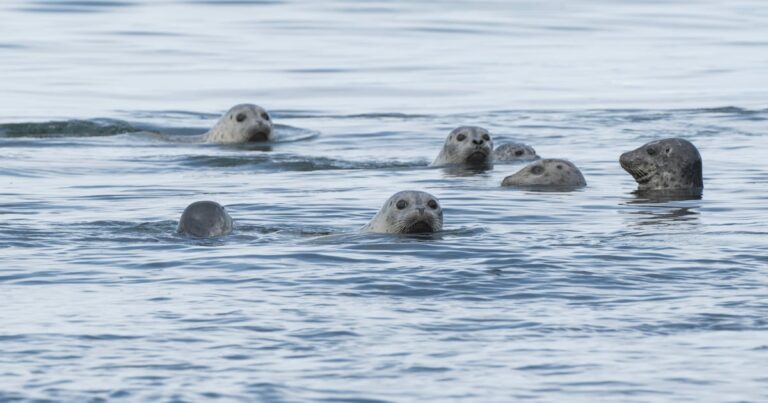Alaska wouldn’t be Alaska without marine mammals. But U.S. Rep. Nick Begich recently came out swinging against our state’s whales, walruses, polar bears, seals and more.
Begich proposed a truly heartless piece of legislation that would gut the remarkably successful Marine Mammal Protection Act. Passed by Congress in 1972 with overwhelming public support, this landmark law has protected Alaska’s marine mammals and ensured that not one species has disappeared, even as ocean use has increased.
If Begich’s bill passes, it would needlessly make our marine mammal species far more vulnerable to injury and death than they already are and could change Alaska’s oceans forever. We can’t let his bill become law.
For more than 50 years, the MMPA has helped safeguard all marine mammals from harm. Under the act, it’s illegal to harass, capture or kill any marine mammal. One important exception is for the sustainable subsistence harvest of marine mammals by Alaska Native people, which the act has always supported.
The act helps marine mammals in so many ways: by reducing bycatch in fisheries, preventing ship strikes, and minimizing damage from industrial activities like offshore oil and gas development. It also helps species recover from population declines. Because of the act, agencies conduct robust research and monitoring for all marine mammal species, consult with tribes and offer the public an opportunity to express concerns when considering potentially harmful activities. The legislation also helps coordinate efforts when whales and other marine animals are entangled or beached.
The MMPA seeks to protect the special ecosystems marine mammals rely on and ensures they can thrive for many future generations.
The changes Begich and his accomplices in Congress want to make to the act, however, would pave the way for extractive industries to run roughshod over these remarkable animals. It sets the bar for the conservation of marine mammal populations to “continued survival,” rather than striving for the current law’s mandate of health and abundance. This will push more marine mammals toward extinction. That would be tragic for the species, and terrible for Alaska.
A weakened MMPA certainly wouldn’t help the many whale-watching tour operators in Southeast Alaska or the Prince William Sound. With fewer whales, these local businesses could struggle to offer eager wildlife seekers regular humpback sightings. And it would only make it easier for industries to further pollute places like Cook Inlet with harmful, loud noise, which could send the highly imperiled beluga whale population over the edge into full collapse.
Begich’s proposed changes could also result in future restrictions on Alaska Native subsistence harvest if unchecked industrial activities dramatically reduced marine mammal populations. Bowhead whales, walruses and bearded seals in the northern Bering Sea or Arctic Ocean could be devastated by newly emboldened offshore oil and gas exploration or the northward expansion of destructive trawl fisheries.
If Begich gets his way in sabotaging this crucial law, he’ll be remembered for decimating one of Alaska’s and our nation’s great biological heritages. As Alaska’s oceans experience rapid and dramatic changes, our marine mammals need even stronger protections and support. The health of our coastal communities and economies depends on it.
Alaska is home to more than 50% of our nation’s coastline, and it’s our responsibility to take care of the incredible diversity of marine mammals living here. We must not abandon them for corporate profit, pollution and plunder of our oceans.
I know Alaskans are proud of our amazing wildlife — a gift to be deeply grateful for. We need to honor this gift and hang on to our pride. Alaskans must defend the Marine Mammal Protection Act and reject Begich’s reckless and unnecessary rollback.
Cooper Freeman is the Alaska director at the Center for Biological Diversity and lives in Homer.
• • •
The views expressed here are the writer’s and are not necessarily endorsed by the Anchorage Daily News, which welcomes a broad range of viewpoints. To submit a piece for consideration, email commentary(at)adn.com. Send submissions shorter than 200 words to letters@adn.com or click here to submit via any web browser. Read our full guidelines for letters and commentaries here.

